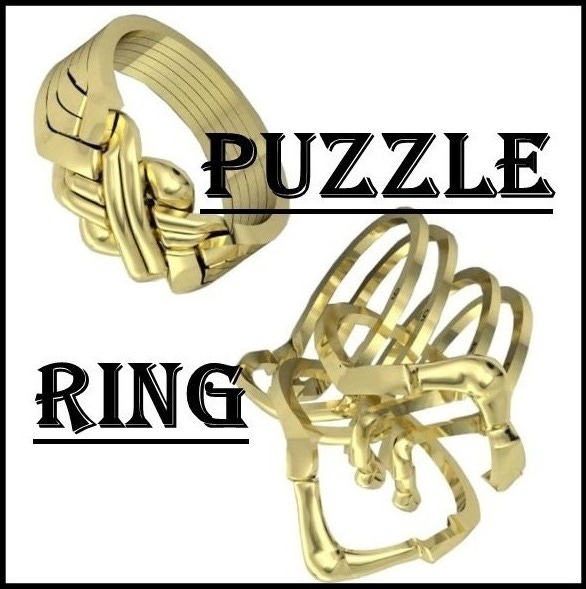Puzzle Ring
I brought my wife back an 18-karat gold puzzle ring once. These are actually five rings in one, elaborately entwined. The Saudis used them for wedding rings. If the bride took it off, the rings fell apart, and there was no way a WOMAN could put them back together, so the husband would know she removed them. My wife had hers welded together. — ‘An Einganeer’s Tale’, page 55
Nearly a century ago, a company I use to work for entered a relationship akin to marriage with Saudi Arabia. Together they gave birth to ARAMCO, the Arabian American Oil Company. The couple was happily married for nearly forty years. ARAMCO grew to be one of the largest companies in the world. The industrial and transportation revolutions of the mid-1900s, as well as World War II, were fueled by its products — and the Al-Saud family became extraordinarily wealthy. Then, sometime in the 1970s, the relationship unraveled. Saudi Arabia took off her ring, and it fell apart — thus showing that Saudi Arabia can not be trusted.
During my career, I’ve probably spent more time in Saudi Arabia than any other foreign country. Although the business opportunities and challenges, as well as most of those I worked with, were wonderful, I was never comfortable being there. When moving to Saudi Arabia became the only option available to me, I resigned.
Each time I went there, I felt profoundly stressed. It was clear that I was not welcomed by anyone I was not there to work with. Going through airport security and passport control was always a nightmare. Arrivals and departures were always in the wee hours of the morning — and always involved hours of waiting, seemingly meaningless herding of people, standing in multiple lines, and stressful encounters with people whose only purpose seemed to deny you entry and make you miserable.
My first trip to Saudi Arabia was in the mid-80s. Saudization (the eventual complete nationalization of ARAMCO) was well underway. The American compound was beginning to fall under the harsh Islamic rules that governed the rest of the country. By 1988 the company would be renamed Saudi Aramco, and the divorce complete.
Since then, reasons to not trust Saudi Arabia have only increased: its questionable role in 9/11 and al-Qaeda, its bullying of world oil markets, its lack of support in Middle-East politics, the Khasoggi affair. Yet they are recognized as the powerhouse in the Middle-East, so we continue to woo them.
Saudi Arabia’s economy is solely based on petroleum. As new sources of energy are developed, and countries become less dependent on Middle-East oil, Saudi Arabia’s fortunes will decline. The International Monetary Fund predicts that starting in 2034, the Gulf states will have used up their stored up money and slowly start going bankrupt.
The Saudis recognize this, and their need to diversify. Currently, two-thirds of the Saudis work for the government. The remaining one third work with the country’s large expatriate population (forty percent of its total population) to provide services. In order to survive, they need to push people into a private sector made up of non-petroleum industries. This requires major investments from other countries. If the West doesn’t step up and do so, they have no reservations about turning to China, who has already invested heavily in Saudi Arabia.
Saudi Arabia wishes they could join NATO, but they know they can’t. They intend, however, to eventually convince the United States to give them a NATO-style agreement for joint defense assurances. Their real intent, though, is to put us in the position of ensuring the survival of the Al-Saud monarchy.
Last week, President Trump announced Saudi Arabia’s intent to invest $600-billion in the United States. That sounds good for us, but as I already wrote, Saudi Arabia really wants us to invest in them, not them to invest in us. The Whitehouse press release says their investment is to strengthen our “partnerships” in defense, security, technology, and economic prosperity. Essentially though, they are paying us to provide them with these things. Once we have, what then?
I still don’t trust her.
Interesting Fact: Saudi Kings believe their rule is sanctioned by Allah. In addition to “King”, they sport the title “Custodian of the Two Holy Mosques” (in Mecca and Medina). They reason that if Allah was not content with their rule he would cause them to lose control of Islam’s holy cities.


